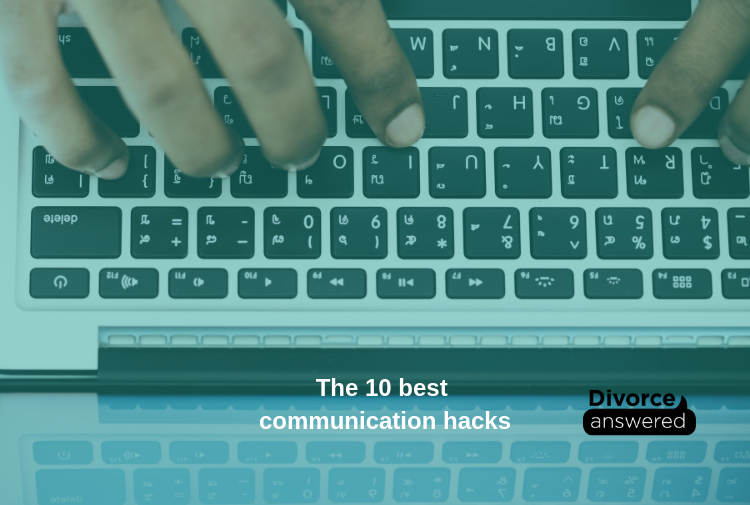The 10 best communication hacks

The way that you communicate with your ex-spouse can help or hinder your divorce process. More often than not, if you can be civil, amicable, respectful and work together to reach an agreement or resolution, then your divorce process will be not as protracted and a shorter divorce is often cheaper. “Having some short-cuts and guidance with the dos and don’ts of communicating in divorce is something that I wish was shared with me when I separated,” said Rachael Scharrer, divorce/relationship expert and separation strategist. She offers a cheat-sheet with the 10 best communication hacks for divorce, which include:
- Put everything in writing. This is a great way of having proof and avoiding the “she said/he said” game. It’s also an easy way of having a diary or journal of events. Remember to also screenshot all SMS, back up SMS, emails and any other written tools/apps that you utilise
- Don’t vent on social media. Sometimes your social media minions are inflammatory and exacerbate the situation without entirely understanding the intricacies
- Less is more. Keep your communication short and show restraint. The more you say, the more that can be used against you. Limit your communication to the essentials – the children, joint assets or debt that needs to have relevant agreement. Say what you need to say, leave out the emotions and be straight to the point
- Pick your battles. You can’t control what happens when the child is in the other parents’ care. It’s best to not complain about the trivial issues but rather save it for impact when you have serous or safety concerns
- Avoid highly emotive terminology. Words that are loaded with emotion or incite an emotional reaction should be avoided at all times. Often the simple use of the word “you” conveys blame. Other words to avoid include (but are not limited to) “don’t,” “hate,” “can’t,” “shouldn’t,” name calling, derogatory terms and generalisations (“you always”)
- Tell the truth. It is hard to keep up with white lies, blatant lies and manipulations of the truth – the truth does come out and telling fibs may work against you in the future. It’s very easy to trip up, lose track and be caught out
- Don’t poke the bear. Understanding what may provoke your ex-spouse and exercising restraint from doing it will serve your separation and overall wellbeing. Divorcing is exhausting at the best of time, you don’t need to make the process harder for yourself
- Don’t use your child as an informant. if there is something that you want to know about your ex-spouse or your child’s other parent or a message that you need to forward to your ex, refrain from asking or using your child. It’s not kind to put your child in the position of ‘telling on’ their other parent and it certainly isn’t your child’s responsibility to pass on messages or put in the middle
- Don’t communicate when angry or upset. When you are feeling hurt, you are more likely to lash out and say something that you might regret. Your response will add fuel to the fire and is likely to make the situation worse. ‘Cool your jets’ and give it time before responding. Remember that it’s difficult to fight with someone who doesn’t fight back
- Sleep on it. Sometimes it is helpful to take some time and respond without pressure. Just because an email or SMS comes in, it doesn’t mean that you have to respond immediately. Time often offers sufficient space for clarity and to process the situation or request and your response. A considered response is often a better response
By holding yourself to a higher standard and maintaining civility no matter what your ex says and does helps to keep your conscience clear and emotionally lighter. It takes a lot more energy and consciousness to be amicable, respectful and positively co-parent as two single individuals. Your relationship with your ex-spouse will go beyond your immediate divorce and separation, especially if you have shared friends, live in close proximity or have children together.
Disclaimer
This is general advice only and is not provided as legal advice. If you have a legal issue, you should contact a lawyer and/or accountant before making a decision about what to do or applying to the Court. DivorceAnswered.com.au cannot provide legal advice. If you have an emergency situation, please contact Emergency '000'. © Divorce Pty Ltd
